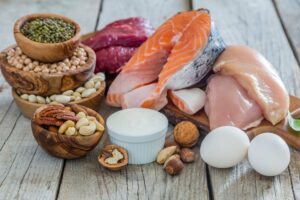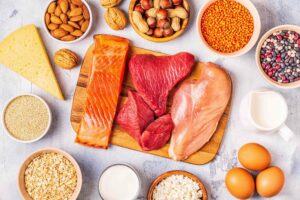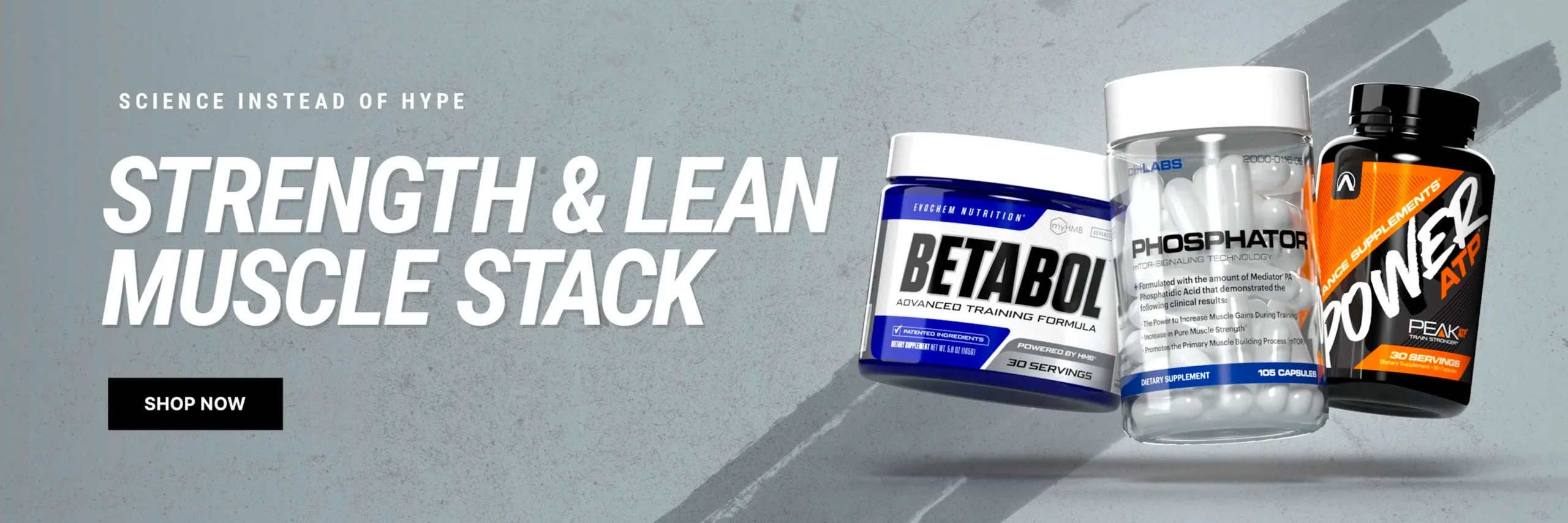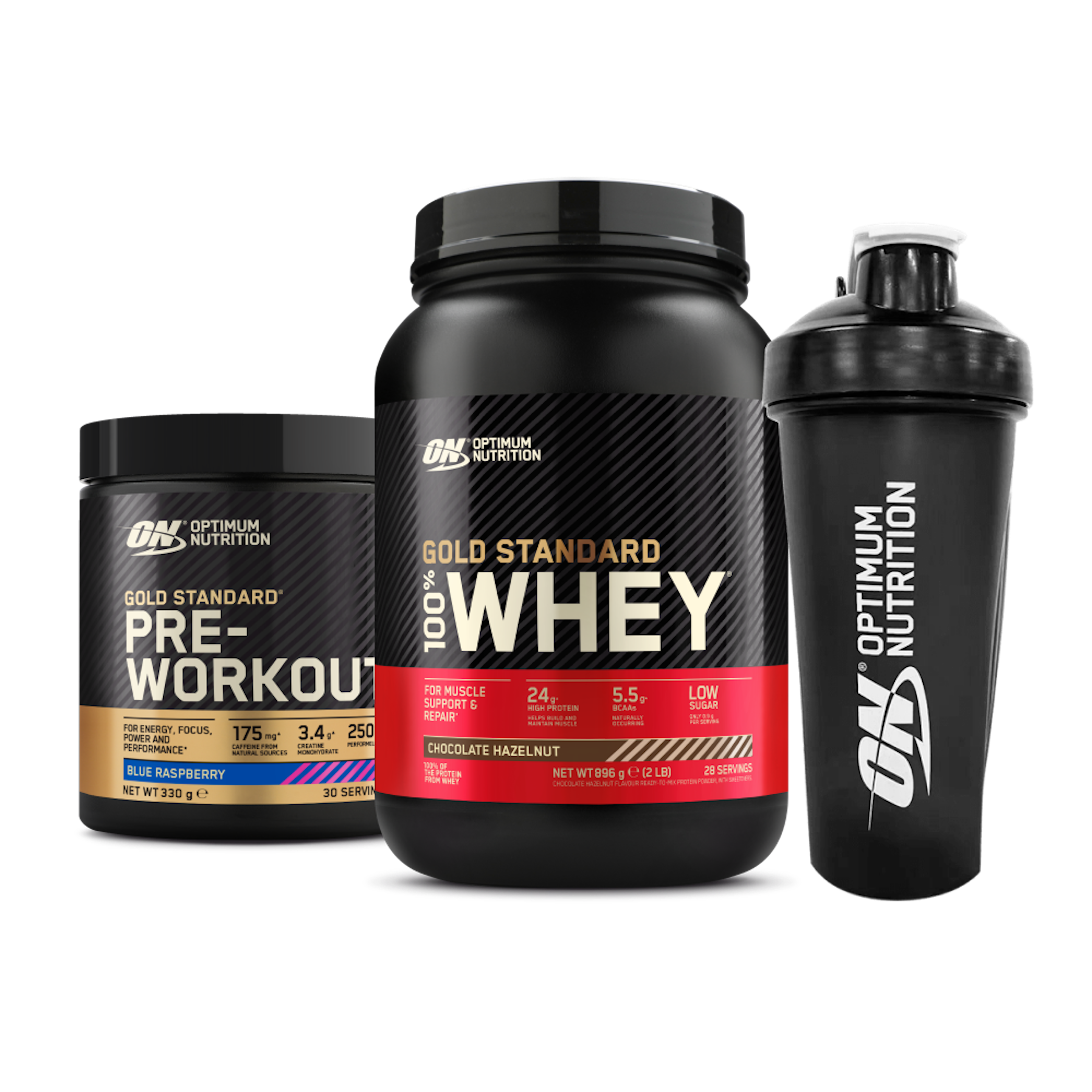A Good Pre-workout meal focuses on complex carbohydrates for energy and some lean protein to support muscle function, while being low in fat and fiber to prevent digestive discomfort.
Examples include oatmeal with fruit, a banana, yogurt with berries, or a whole-grain toast with peanut butter. The ideal timing is 1–3 hours before exercise for a full meal or a smaller, easily digestible snack closer to the workout.
Athletes and fitness enthusiasts are always looking for ways to improve their performance and achieve their goals.
Good nutrition can help your body perform better and recover faster after each workout.
Optimal nutrient intake prior to exercise will not only help you maximize your performance but also minimize muscle damage. What to eat before a workout (pre-workout meal) is crucial for maximizing performance, preventing fatigue, and supporting muscle growth.
Here is everything you need to know about pre-workout nutrition.

Check Out Our List Of The Best Supplements For Building Muscle, Shredding Muscle, Recovery, And Great Health, and Wellness Products! Purchase ifbnewsfeed.org‘s apparels Here: ifbnewsfeed.org
 knowing What to Eat Is Important
knowing What to Eat Is Important
Fueling your body with the right nutrients prior to exercise will give you the energy and strength you need to perform better.
Each macronutrient has a specific role before a workout. However, the ratio in which you need to consume them varies by the individual and type of exercise.
Below is a brief look at the role of each macronutrient.
Carbs
Your muscles use the glucose from carbs for fuel.
Glycogen is the way the body processes and stores glucose, mainly in the liver and muscles.
For short- and high-intensity exercise, your glycogen stores are your muscles’ main source of energy.
But for longer exercises, the degree to which carbs are used depends on several factors. These include the intensity, type of training, and your overall diet.
Your muscles’ glycogen stores are limited. As these stores become depleted, your output and intensity diminish.
Studies have consistently shown that carbs can increase glycogen stores and utilization while boosting carb oxidation during exercise.
Carb loading, which involves consuming a high-carb diet for 1–7 days, is a well-known method to maximize glycogen stores.
Protein
Many studies have documented the potential of pre-workout protein consumption to improve athletic performance.
Eating protein (alone or with carbs) prior to exercise has been shown to increase muscle protein synthesis.
One study showed a positive anabolic response after participants consumed 20 grams of whey protein before exercise.
Other benefits of eating protein before exercise include:
- A better anabolic response, or muscle growth
- Improved muscle recovery
- Increased strength and lean body mass
- Increased muscle performance
Fat
While glycogen is used for short- and high-intensity bouts of exercise, fat is the source of fuel for longer and moderate-to-low-intensity exercise.
Some studies have investigated the effects of fat intake on athletic performance. However, these studies looked at high-fat diets over a long period, rather than prior to exercise.
For example, one study showed how a four-week diet consisting of 40% fat increased endurance running times in healthy, trained runners.
Wrapping Up
Carbs help maximize glycogen stores for high-intensity exercise, while fat helps fuel your body for longer, less intense workouts. Meanwhile, protein improves muscle protein synthesis and aids recovery. By fueling your body properly before your workouts, you can maximize your performance, build muscle, and improve recovery.
Related Articles:
- Male Bodybuilder’s Diet: How To Diet As “Male Bodybuilder” Does. Here’s “The Perfect Diet” For Competitive Bodybuilders
- How A “Competitive Bodybuilder/Athlete” Should Engage In Dieting Before, During, And After The Shows (Lifetime)
- The Best “6 Healthy Eating Habits” You Should Consider To Improve Them To Get Better Results

- A1Supplements.com – America’s Favorite Supplement Store.
- Shop Optimum Nutrition Energy: Anytime & Pre-Workout
- A1Supplements.com – Lose Fat, Gain Muscle!
For More News And Daily Updates, Follow IFBNewsfeed.Org on Facebook, Twitter, and Instagram. Comment, Like, And Share With Everyone Who May Need To Be Updated With The Most Recent Fitness/Bodybuilding/Powerlifting And CrossFit News.







